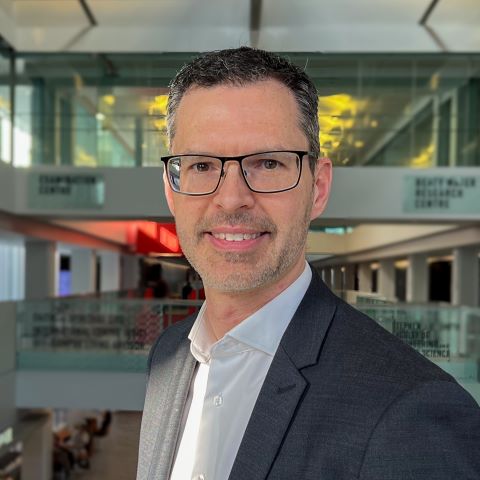
My research projects help to address the following UN Sustainable Development Goals:
Dr. Kevin Mumford is an Environmental Engineer committed to helping us better understand the behaviour of contaminants in subsurface environments and how that understanding can be used to protect and remediate soil and groundwater. He directs a research group focused on the investigation of multiphase flow and mass transfer in groundwater systems, including those related to non-aqueous phase liquids (NAPLs) and subsurface gases, using a combination of laboratory experiments and numerical models, to develop and improve site investigation strategies and remediation technologies.
Education:
|
2008 |
Doctor of Philosophy (PhD) in Civil Engineering (McMaster University) |
|
2002 |
Master of Applied Science (MASc) in Civil Engineering (University of Waterloo) |
|
2000 |
Bachelor of Applied Science (BASc) in Environmental Engineering (Chemical) (University of Waterloo) |
Professional and Academic Experience:
|
2016 - Present |
Associate Professor, Department of Civil Engineering, Queen's University |
|
2019 |
Acting Associate Head, Department of Civil Engineering, Queen’s University |
|
2010 - 2016 |
Assistant Professor, Department of Civil Engineering, Queen's University |
|
2009 |
Postdoctoral Fellow, Department of Civil & Environmental Engineering, University of Western Ontario |
|
2006 |
Sessional Lecturer, Department of Civil Engineering, McMaster University |
|
2004 - 2007 |
Teaching Assistant, Department of Civil Engineering, McMaster University |
|
2002 - 2004 |
Consultant, Geomatrix Consultants and Engineers Inc., Waterloo, Ontario |
|
2000 - 2002 |
Teaching Assistant, Department of Civil Engineering, University of Waterloo |
What we do: The world is connected by water. Water resources, including groundwater, are under enormous pressure from the effects of climate change, energy resource development, and the impact of emerging contaminants. There is an urgent need to protect and manage the quantity and quality of groundwater to promote its sustainable use in a global society. With this larger objective in mind, the Mumford Research Group is focused on answering questions related to groundwater contamination and remediation, with a particular interest in multiphase flow and mass transfer in porous media. Our research uses high-resolution experiments conducted in physical laboratory models of groundwater systems in combination with advanced numerical models to identify key processes and explore their effects at the field scale.
In Situ Thermal Remediation: Heating soil and groundwater to remove volatile and semi-volatile compounds is an aggressive and effective remediation technology, particularly for the removal of non-aqueous phase liquids (NAPLs) such as a petroleum fuels and chlorinated solvents. Thermal technologies often rely on the production, capture and treatment of a gas phase, whose migration is sensitive to subsurface heterogeneities. Advances are needed to effectively and efficiently treat compounds with higher boiling points, reduce energy consumption, and develop combined technologies.
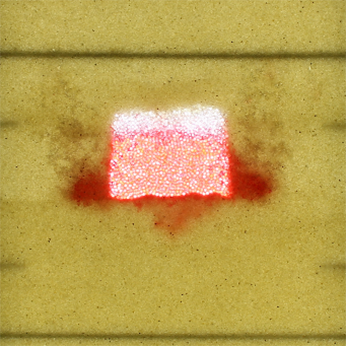
Subsurface Gas Migration: Gases in shallow aquifers can be created by a wide variety of mechanisms, including by in situ remediation technologies, microbial populations, and leaks from improperly sealed deeper wells, and include gases relevant to GHG emissions such as CO2 and CH4. Their migration is controlled by both capillary and buoyancy forces, resulting in a complex and dynamic gas architecture. Questions remain concerning the dissolution of these trapped gases, interactions with background dissolved gases, and effects on emissions, persistence, investigation and monitoring.
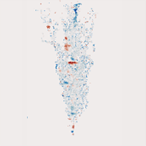
Subsurface Gas Migration: Gases in shallow aquifers can be created by a wide variety of mechanisms, including by in situ remediation technologies, microbial populations, and leaks from improperly sealed deeper wells, and include gases relevant to GHG emissions such as CO2 and CH4. Their migration is controlled by both capillary and buoyancy forces, resulting in a complex and dynamic gas architecture. Questions remain concerning the dissolution of these trapped gases, interactions with background dissolved gases, and effects on emissions, persistence, investigation and monitoring.
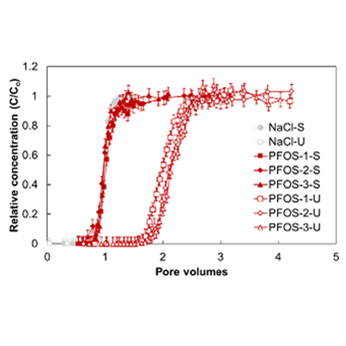
Bubble-facilitated VOC Transport: Gas bubbles can be created by a wide variety of natural and remediation-based mechanisms, including gas trapping during water table fluctuations, biogenic gas production, and the exsolution of gases produced by remediation reactions. It is important to understand the effect of these gases on contaminant transport, including through the mobilization of gas bubbles and the partitioning of contaminants, such as volatile organic compounds (VOCs), to the gas phase or gas-water interface. Implications of these effects include natural source zone depletion and vapour intrusion.
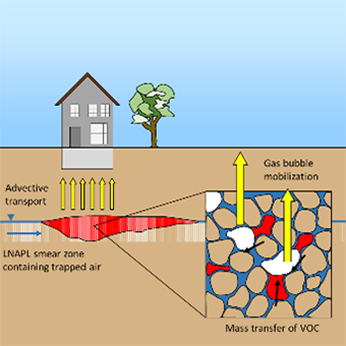
Simulation using Macroscopic Invasion Percolation: Numerical models of multiphase flow using macroscopic invasion percolation (macro-IP) are an alternative to traditional continuum-based approaches that is particularly well suited for simulating unstable non-wetting phase invasion, including fragmentation and mobilization processes. Continuum-based models of heat and mass transport have been coupled to macro-IP models to provide insight into in situ thermal remediation, methane dynamics in peatlands, and the bubble-facilitated transport of volatile organic compounds (VOCs).
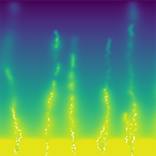
|
2022 |
Civil Engineering Teaching Award, Queen’s University, Dept. of Civil Engineering |
|
2020 |
Excellence in Research Award, Faculty of Engineering and Applied Science, Queen’s University |
|
2019 |
Nominated for the Award for Excellence in Graduate Supervision, Queen’s University |
|
2018 |
Civil Engineering Teaching Award, Queen’s University, Dept. of Civil Engineering |
|
2015 |
Civil Engineering Teaching Award, Queen’s University, Dept. of Civil Engineering |
|
2013 |
Finalist for Frank Knox Award for Excellence in Teaching from the Alma Mater Society of Queen’s University |
|
2013 |
Civil Engineering Teaching Award, Queen’s University, Dept. of Civil Engineering |
|
2009 |
NSERC Postdoctoral Fellowship |
|
2009 |
Governor General’s Academic Gold Medal, McMaster University |
|
2009 |
McMaster Nominee, NSERC Doctoral Prize (Eng. & Comp. Sci.) |
|
2009 |
McMaster Nominee, Canadian Association for Graduate Studies/University Microfilms International (CAGS/UMI) Distinguished Dissertation Award (Engineering/Medical Sciences/Natural Sciences) |
1. Ariel Nunez Garcia (Postdoctoral Researcher)
Intermediate-scale testing of in-situ thermal remediation to optimize performance monitoring
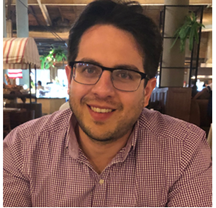
2. Qianli Xie (PhD candidate)
Modelling of mass recovery during thermal remediation using invasion percolation techniques (co-supervised by B. Kueper)
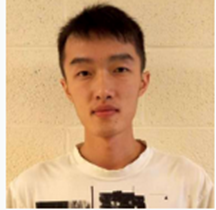
3. Madeline Calvert (MASc candidate)
Multicomponent gas-water partitioning during stray gas migration

4. Aidan McKinstry (MASc candidate)
Bubble-facilitated transport from contaminated sediments (co-supervised by R. Mulligan)

5. Liam Price (PhD candidate)
High-temperature treatment of PAHs in semi-volatile NAPL mixtures

6. Pengjie Wang (PhD candidate)
Thermal treatment of soil and groundwater

7. Julia Barnes-James (MASc candidate)
PFAS transport by mobilized air bubbles
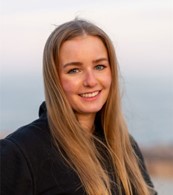
Former Group Members: